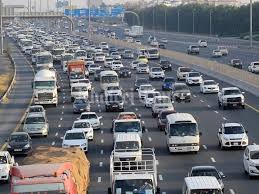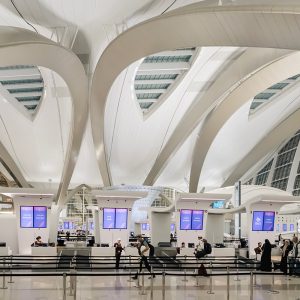The UAE is considering stricter car ownership regulations as part of a comprehensive strategy to alleviate the persistent traffic congestion between Dubai and Sharjah. This proposal aims to limit vehicle registrations per household, encourage the use of public transport, and implement congestion pricing in key bottleneck areas.
Addressing the Dubai-Sharjah Traffic Crisis
The daily commute between Dubai and Sharjah is one of the most challenging in the UAE, with thousands of vehicles clogging major highways such as Sheikh Mohammed bin Zayed Road and Al Ittihad Road during peak hours. The proposed measures come as authorities seek long-term solutions to improve mobility, reduce carbon emissions, and enhance road safety.
A senior official from the UAE’s transportation sector stated, “The goal is not just to reduce the number of vehicles on the road but to create a sustainable transportation system that benefits all residents.”

Key Aspects of the Proposed Regulations
- Vehicle Quota System: A limit on the number of vehicles that can be registered per household based on income, parking availability, and public transport access.
- Congestion Charges: Implementation of toll fees during peak hours on key entry and exit points between Dubai and Sharjah.
- Stricter Parking Policies: Households without dedicated parking may face restrictions on car ownership to prevent vehicles from being parked in unauthorized areas.
- Encouragement of Electric Vehicles (EVs): Incentives for residents to switch to EVs, including reduced tolls and priority parking.
- Enhanced Public Transport Options: Expansion of intercity buses, metro connectivity, and water taxis to provide viable alternatives to driving.
Public Reaction and Economic Impact
While many residents acknowledge the need for better traffic management, some express concerns about the impact of car ownership restrictions on middle-class families. Dubai and Sharjah have long been economic hubs attracting professionals who rely on personal vehicles for work. Businesses that depend on deliveries and personal transport services might also feel the pinch if regulations become too restrictive.
However, urban planners argue that similar policies have been successfully implemented in cities such as Singapore and London, where congestion pricing and vehicle quotas have dramatically improved traffic conditions. Experts also highlight the potential economic benefits of a smoother transportation network, including increased productivity and reduced fuel costs.

The Future of Urban Mobility in the UAE
The UAE government has been actively investing in alternative mobility solutions, including self-driving taxis, hyperloop technology, and expanded metro lines. The upcoming stricter car ownership rules are expected to complement these advancements by creating a more efficient, sustainable urban transportation system.
If approved, the new regulations could be rolled out in phases over the next few years, starting with pilot programs in high-congestion zones. Authorities emphasize that public feedback will play a crucial role in shaping the final implementation plan.
As Dubai and Sharjah continue to grow, balancing personal vehicle ownership with an efficient public transport network will be key to ensuring a smooth and sustainable urban experience for residents and commuters alike.
Do follow Uae stories for more Updates














